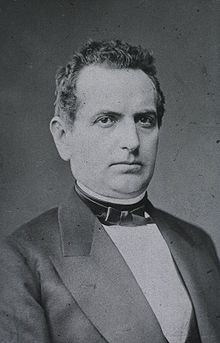- Max Wilms
-
Carl Max Wilhelm Wilms (November 5, 1867 - May 14, 1918) was a German pathologist and surgeon who was a native of Hünshoven, which today is part of the town Geilenkirchen.
In 1890 he earned his medical doctorate from the University of Bonn, and afterwards was an assistant to pathologist Eugen Bostroem (1850-1928) in Giessen and internist Otto Michael Ludwig Leichtenstern (1845-1900) in Cologne. In 1899 he was habilitated for surgery at Leipzig, and in 1907 he became a professor of surgery at Basel. In 1910 he attained the chair of surgery at the University of Heidelberg. In May 1918, while performing emergency surgery on a French P.O.W. who had a swollen larynx associated with diphtheria, Wilms became infected with the disease, and died within a few days at the age of 50. Reportedly, he was successful in saving the life of the French soldier. After his death, his position at Heidelberg was filled by surgeon Eugen Enderlen (1863-1940).
Max Wilms is remembered for his work in the field of nephrology, and his pathological studies concerning the development of tumor cells. In his research of renal tumors, he proposed that tumor cells originate during the development of the embryo. He published his findings in an influential 1899 monograph titled Die Mischgeschwülste der Niere. As a result of his extensive research of renal tumors, another name for a nephroblastoma is the eponymous Wilms' tumor, which is a malignant tumor of the kidney.
Wilms made several contributions as a surgeon, and is credited for introducing a partial rib resection used in the treatment of pulmonary tuberculosis. He also did extensive work in the field of radiology, and is credited for developing a manometer for measurement of cerebrospinal fluid pressure.
References
Categories:- German surgeons
- Nephrologists
- German pathologists
- 1918 deaths
- 1867 births
- University of Bonn alumni
- University of Heidelberg faculty
Wikimedia Foundation. 2010.

